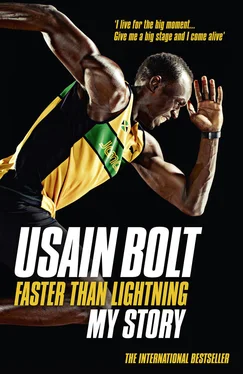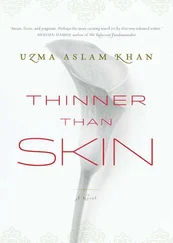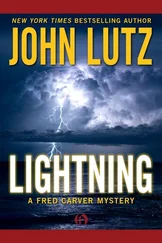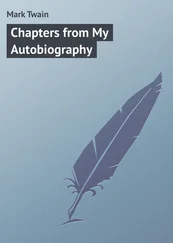On the flip side, Champs provided a hunting ground for Jamaica’s government-funded coaches. In 1980, our old Prime Minister Michael Manley established the GC Foster College – an educational facility working entirely in physical education and sports coaching. It’s one of the reasons why, with a population of 2.7 million people, Jamaica developed as many gold medallists as a lot of the world’s bigger countries. GC Foster College produced the coaches; the coaches scouted the best junior athletes at Champs, then they turned them into title-winning pros.
Understandably, head teachers from across the country were always looking out for new athletic talents to add to their Champs alumni. Schools got a lot of props for producing successful track and field competitors, and William Knibb’s principal, Margaret Lee, was a teacher with sporting smarts. After she had got wind of some of my race times, Miss Lee told me that the school would pay a chunk of my tuition fees as part of a sports scholarship. They had spotted my athletic potential. A subsidised education seemed a fair trade for my track and field talent in 1997, especially if I stepped up and made it all the way to Champs a few years down the line.
That pleased Pops. Although he worked real hard for the coffee company, we weren’t rich enough to afford expensive school fees; our life was financially modest. But Dad believed it was important that I got everything I needed when I was a kid. He loved me dearly and cared for me, so if there was something I required for some forward movement in life, like a pair of running shoes or a place at William Knibb High School, then he made sure I got it – no problem. I wasn’t spoiled and I definitely didn’t go around getting everything I asked for, but Mom and Dad gave me the helping hand I needed to get started.
My only problem with going to William Knibb was that the school didn’t want me to play cricket any more, not seriously anyway. I was 11 years old, and I was hoping to go to PE lessons, pick up my pads and bat and continue with my dream of becoming a Test sensation. The teachers had other ideas, though. They wanted me to focus on my running, and in the first week at school, when I wandered over to the wicket in the middle of the school field to play, I was turned away.
‘No, Bolt,’ said the teacher. ‘You’re not supposed to be over here, I can’t keep you. The running track is that way.’
That was a bit of a bummer. I went home that night and complained, but Pops set me straight on the matter. Cricket, he said, would prove to be a political game for me, rather than one that was based on my talents and hard work. A coach’s team choices were sometimes swayed by favouritism, but in athletics a person was selected through his times and personal bests.
‘Bolt, if you do well in track and field, it’s on you and no one else,’ he said. ‘In cricket, there are other people involved because it’s a team sport. It can get tricky. You could play well, better than anyone else, but if the coach has a favourite, then you might not get picked. That happens quite a lot in life and it’s unfair. But in track and field you’re the boss of yourself.’
His words sunk in. I liked the idea of being in charge. When it came to the next PE lesson I focused my efforts on the track, and over the following 12 months I must have tried every distance going: the 100 metres, 200 metres, 400 metres, 800 metres and 1500 metres. I did relays, I even tried cross-country once, but hated it, because running that far felt like way too much hard work.
Eventually, I settled on running the 200 and 400 metres as my competitive events, because it was clear I didn’t have the lungs or will-power to run anything longer, not at a serious level anyway. Those events also made the most of my speed stamina, the power to run at a high pace without tiring. All those hours running around the bush at Coxeath and playing sports had paid off. I was fast and strong on short to medium distances.
The 100 metres was out because I was already six feet tall and still growing. That physical stature apparently made me too big to run the shorter distance. The belief among William Knibb’s coaches was that it would take me for ever to unravel my body out of the blocks, and by the time I’d fired out of the start position, they said, my shorter opponents would be halfway to winning the race.
Luckily, it didn’t matter if I was slowest out of the blocks in the 200 or 400, because with my long strides and quick legs I was able to catch up with the shorter athletes after 50 metres or so, even though my technique was raw back then. I would run with my head up, looking around at everyone else in the race; my knees would come up really high as I pounded the lane. If I’d flapped my arms a bit more, I probably would have taken flight.
That crazy-assed style didn’t stop me from dominating all the other kids at William Knibb on the track. As I took to the 200 and 400, I’d sometimes show off a little bit because I was physically so much faster than everyone else and winning came so easily to me. In PE everybody else seemed extra slow, and there were times when I’d burn away from the pack in a race, stopping at the finish to walk over the line in first spot, just as everybody else had closed in on me.
One time, I remember running the 400 metres final during an inter-schools meet and for a while I was neck and neck with the fastest other kid in the lanes. He was sprinting alongside me, giving everything he had. The veins were popping in his neck, I swear his eyes were on stalks with all the effort, but I hadn’t even got into second gear. As I came off the corner I looked over and smiled.
‘Yo, later,’ I shouted, showing him a clean pair of heels.
When he got to the line, which was a long time after me, he looked seriously pissed.
I couldn’t help fooling around, because competition brought out a determined streak in me and winning was a joy. I had so much natural talent that on sports days nobody else came close to me and I’d line up in just about every race on the card and come first. One time I even entered the high jump and long jump events because I figured they might be fun. When I finished first in both, the other kids cussed as I collected all my medals, but I couldn’t blame them. The boys at William Knibb had to line up against me in an event – any event – knowing that first place had already been taken. There wasn’t a kid in the school that had a chance of catching me once the gun had gone. *
The school could see that I had a serious talent. It got to the point where I was running so quickly in training that the coaches wouldn’t tell me my times. They didn’t want me to get big-headed because they were off the scale for a boy my age. I later heard that when a new PE teacher timed me in the 200 he had to double-check his watch afterwards.
‘ What?! ’ he said to the kids standing around him. ‘The times Bolt is running are ridiculous. They cannot be for real.’
He reset his watch and made me run again. Then again. And again. Every time I crossed the line and looked over, he was pulling the same shocked face, tapping on the face of his watch like it was broken. The readings on his timer were as quick, if not quicker, than before.
***
I was my own worst enemy. Despite Pops’s discipline at home, I became lazy. At school, I wasn’t too keen on training either. I never pushed myself when it came to practice and I’d do enough to get through a session without really exerting my body. Because my raw talent was out of this world, I used to cruise through practice and get by. Usually getting to the start line and running was enough for me to win a school championship, but my lack of effort meant I wasn’t improving or working on any new techniques. The trophies and accolades had papered over the cracks – there were some major flaws in my running. With my floppy neck and high knees, I really had no style at all.
Читать дальше












